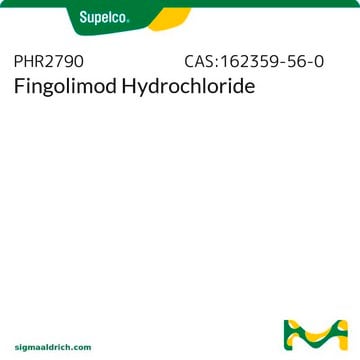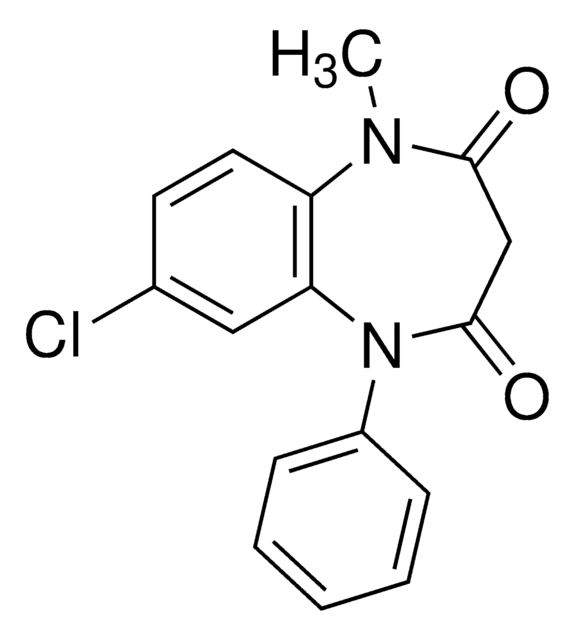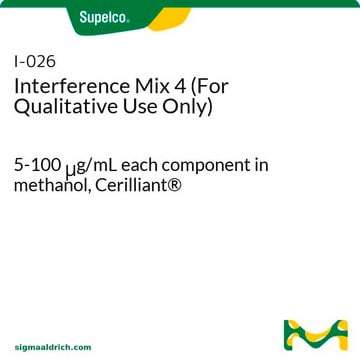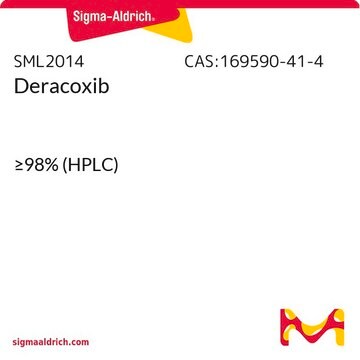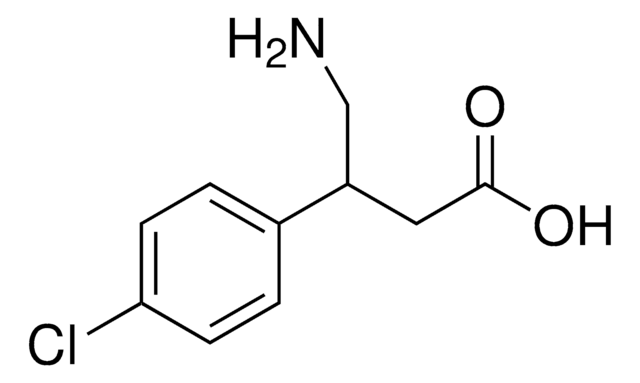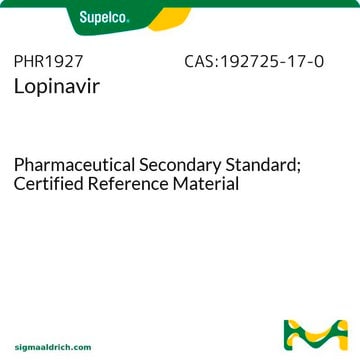1270480
USP
Fingolimod Hydrochloride
United States Pharmacopeia (USP) Reference Standard
Synonym(s):
FTY720, 2-Amino-2-[2-(4-octyl-phenyl)-ethyl]-propane-1,3-diol hydrochloride, Fingolimod hydrochloride
About This Item
Recommended Products
biological source
synthetic
Agency
USP
API family
fingolimod
form
powder
manufacturer/tradename
USP
storage condition
protect from light
color
white
solubility
DMSO: soluble
ethyl acetate: soluble
water: soluble
application(s)
pharmaceutical
storage temp.
2-8°C
InChI
1S/C19H33NO2.ClH/c1-2-3-4-5-6-7-8-17-9-11-18(12-10-17)13-14-19(20,15-21)16-22;/h9-12,21-22H,2-8,13-16,20H2,1H3;1H
InChI key
SWZTYAVBMYWFGS-UHFFFAOYSA-N
Looking for similar products? Visit Product Comparison Guide
General description
This product is provided as delivered and specified by the issuing Pharmacopoeia. All information provided in support of this product, including SDS and any product information leaflets, have been developed and issued under the Authority of the issuing Pharmacopoeia. For further information and support please go to the website of the issuing Pharmacopoeia.
Application
Biochem/physiol Actions
Analysis Note
Other Notes
related product
Signal Word
Warning
Hazard Statements
Precautionary Statements
Hazard Classifications
STOT RE 2
Target Organs
Immune system
Storage Class Code
11 - Combustible Solids
WGK
WGK 3
Flash Point(F)
Not applicable
Flash Point(C)
Not applicable
Certificates of Analysis (COA)
Search for Certificates of Analysis (COA) by entering the products Lot/Batch Number. Lot and Batch Numbers can be found on a product’s label following the words ‘Lot’ or ‘Batch’.
Already Own This Product?
Find documentation for the products that you have recently purchased in the Document Library.
Customers Also Viewed
Our team of scientists has experience in all areas of research including Life Science, Material Science, Chemical Synthesis, Chromatography, Analytical and many others.
Contact Technical Service